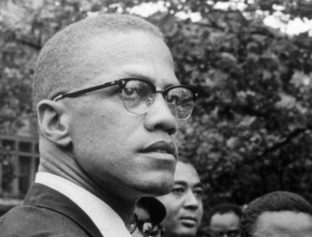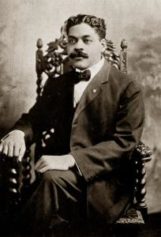Nathaniel Montague is a modern day Arthur Schomburg.
Schomburg, born Arturo Alfons Schomburg, was a black Puerto-Rican (1874 – 1938) who rose to become a prominent intellectual figure in the Harlem Renaissance.
Schomburg took it as a personal mission to collect all manner of literature, art and other items documenting the historical contributions of Africans and Afro-Latinos in the Americas.
The expansive collection of Schomburg was eventually purchased and formed the basis of what became the Schomburg Center for Research in Black Culture that is permanently housed in the Harlem branch of the New York Public Library. A much less noble fate likely awaits the Montague Collection.
CNN reports that the priceless, 8,000-piece collection of rare African-American memorabilia Nathaniel Montague spent decades collecting could be dismantled if a buyer doesn’t come forward by mid-July.
During a status hearing in bankruptcy court scheduled for July 20 in Las Vegas, creditor ABKCO Music & Records plans to ask the court to conduct an auction of the items in the Montague Collection, which includes slave and indentured servitude documents, a signed copy of Phillis Wheatley’s “Poems on Various Subjects” dated 1773, and a handwritten letter from Booker T. Washington seeking financial assistance for 221 students at Tuskegee.
“There’s nothing I can do,” Montague said. “I wish there were, but there isn’t. I just hope that we don’t turn out to be losers, and that I get something for my efforts.”
Montague, a onetime radio personality who coined the phrase “Burn, Baby, Burn,” spent 50 years acquiring rare and one-of-a-kind pieces of American history, including books, photographs, paintings and ephemera. An assessment of five of the pieces puts their total value somewhere between $592,000 and $940,000. His goal was to turn it into a museum. Now that it is out of his possession, he just wants to see his life’s work remain intact.
Years ago Montague and his wife of 56 years, Rose Casalan, began taking out loans to archive and prepare the collection for sale. They found themselves overextended financially and declared bankruptcy last year. The collection was seized and is now housed under tight security in Las Vegas. It is in the hands of a trusteeship charged with selling it to satisfy the debts, including a judgment for $325,000 plus fees from New York-based ABKCO, an independent entertainment company that owns rights to recordings by Sam Cooke, The Rolling Stones and Bobby Womack.
Fees have continued to mount, including $250,000 from a financing company to pay for housing and marketing the collection, said Jason Wiley, an attorney for ABKCO.
ABKCO had agreed to give the trusteeship six months to market the collection. Time has run out, and there have been no buyers. Now, the company plans to petition the court to conduct an auction of the collection during the July 20 hearing.
“We haven’t come close to getting this thing sold,” Wiley said. “We’ve got to cut this thing off.”
Dotan Melech, the federal bankruptcy trustee charged with administering the Montague estate, is still hopeful he can find a buyer or get more time from the court. He has sent letters to a few hundred individuals and nonprofits that have shown interest in the collection asking them to submit their best bid by July 13.
He is trying to come up with other solutions, as well, including setting up Twitter and Facebook accounts to help get the word out. He’s also considered a Kickstarter campaign.
“In this economy, no one throws money at anything,” Melech said. “We’re trying as hard as we can.”
If the judge grants ABKCO’s request, the collection could be sold piecemeal until the debt is satisfied. Any remaining items could be returned to Montague.
That will break his heart, Melech said.
“If you have five children and two are taken away, it doesn’t hurt less because you got three back,” he said.
Montague says he will think positively until a deal is made.
“I only want to look ahead, that it can be done,” he said. “Every day I think of what I can do until time runs out.”
Source: CNN and Black Economic Development

